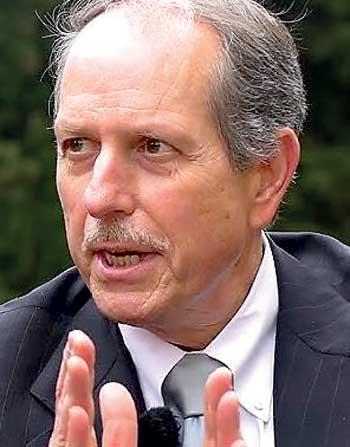01 Sep 2023 - {{hitsCtrl.values.hits}}

Lee. C. Buchheit
As Sri Lanka strives to get its ducks in a row to meet the targets set by the International Monetary Fund (IMF) for the upcoming review in September, sovereign debt restructuring veteran Lee. C. Buchheit said the authorities could consider debt for nature swap as part of the broader external debt restructuring discussions.
He said some discussion in that regard is expected going forward as the debt for nature component is becoming popular with significant segments of the institutional investor population.
“They (creditors) wish to burnish their so-called ESG credentials and some link debt for nature, debt for sustainability feature, and it is likely to form part of the eventual debt restructuring package,”
he said.
Buchheit, who worked on more than two dozen sovereign-debt restructurings, shared his views while addressing a virtual forum organised by NBD Securities themed ‘Turning the Page in Sri Lanka: Beyond the Sovereign Debt Crisis’.
Buchheit led the legal teams advising Greece in the 2012 restructuring of government bonds totaling more than 206 billion euros (the largest sovereign debt workout in history).
Earlier this year, Central Bank Governor Dr. Nandalal Weerasinghe stated that Sri Lanka would be open to considering the option of debt for nature swap if a request is made. He asserted that if such a swap can be done within the timeline, Sri Lanka is certainly open to the option.
The concept of debt for nature swap was introduced by the World Wildlife Fund in early 1980s. It is aimed at freeing up fiscal resources so that governments can improve resilience without triggering a fiscal crisis or sacrificing spending on other development priorities.
It is a voluntary transaction in which an amount of debt owed by a developing country government is canceled or reduced by a creditor, in exchange for the debtor making financial commitments to conservation. (SAA)
30 Oct 2024 15 minute ago
30 Oct 2024 1 hours ago
30 Oct 2024 3 hours ago
30 Oct 2024 3 hours ago
30 Oct 2024 3 hours ago